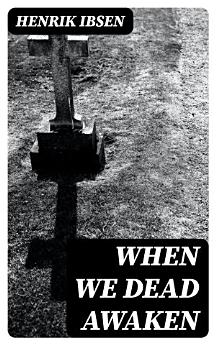When We Dead Awaken
Henrik Ibsen
may 2022 · DigiCat
Libro electrónico
49
Páginas
family_home
Apto
info
reportLas calificaciones y opiniones no están verificadas. Más información
Acerca de este libro electrónico
"When We Dead Awaken" is the final play of Henrik Ibsen, encapsulating his profound exploration of existential themes and the human condition. Written in 1899, this poignant work employs a symbolist style, blending realism with allegorical elements to investigate the complexities of identity, art, and the inevitability of mortality. Centered around the encounter between a sculptor and the women in his life, Ibsen crafts a narrative steeped in metaphysical inquiry, prompting readers to reflect upon the nature of awakening and the consequences of creative endeavor in a world fraught with societal constraints. Henrik Ibsen, often hailed as the father of modern drama, drew from his own experiences and societal observations when crafting his plays. His struggles with personal identity and the moral dilemmas of artistic expression in a rapidly changing world profoundly influenced his later works. Ibsen's own conflicts with societal expectations and his longing for authenticity resonate through the characters and themes of "When We Dead Awaken," reflecting a culmination of his philosophical and artistic journey. This remarkable play is highly recommended for those exploring the intersections of art, identity, and mortality. Ibsen's rich characterizations and thought-provoking dialogue make it a must-read for scholars and enthusiasts of modern literature alike, inviting readers to confront their own awakenings as they navigate the intricacies of life.
Acerca del autor
Henrik Ibsen, born on March 20, 1828, in Skien, Norway, is often referred to as the 'father of modern drama.' He crafted a new genre of realistic plays that reflected the concerns and problems of ordinary people, deviating from the melodramatic and highly stylized theater of his time. Ibsen's theater was revolutionary for its directness, its examination of the individual's struggles against societal norms, and its use of symbolism. Throughout his career as a playwright, he gained international recognition, particularly for his masterpieces such as 'A Doll's House' and 'Hedda Gabler'. One of his later works, 'When We Dead Awaken' (1899), serves as Ibsen's final play and is often interpreted as an autobiographical reflection on his own life and career, dealing with themes of artistic inspiration, regret, and the complex relations between the artist and his creations. This play, like many of his others, is characterized by its symbolic and expressionistic elements that set the stage for modernist and post-modernist dramas. Ibsen's influence stretched beyond the realm of theater to affect social reform, particularly around the roles of women in society. His works continue to be performed worldwide and his contribution to the arts ensures his lasting legacy within the pantheon of great literary figures.
Califica este libro electrónico
Cuéntanos lo que piensas.
Información de lectura
Smartphones y tablets
Instala la app de Google Play Libros para Android y iPad/iPhone. Como se sincroniza de manera automática con tu cuenta, te permite leer en línea o sin conexión en cualquier lugar.
Laptops y computadoras
Para escuchar audiolibros adquiridos en Google Play, usa el navegador web de tu computadora.
Lectores electrónicos y otros dispositivos
Para leer en dispositivos de tinta electrónica, como los lectores de libros electrónicos Kobo, deberás descargar un archivo y transferirlo a tu dispositivo. Sigue las instrucciones detalladas que aparecen en el Centro de ayuda para transferir los archivos a lectores de libros electrónicos compatibles.







